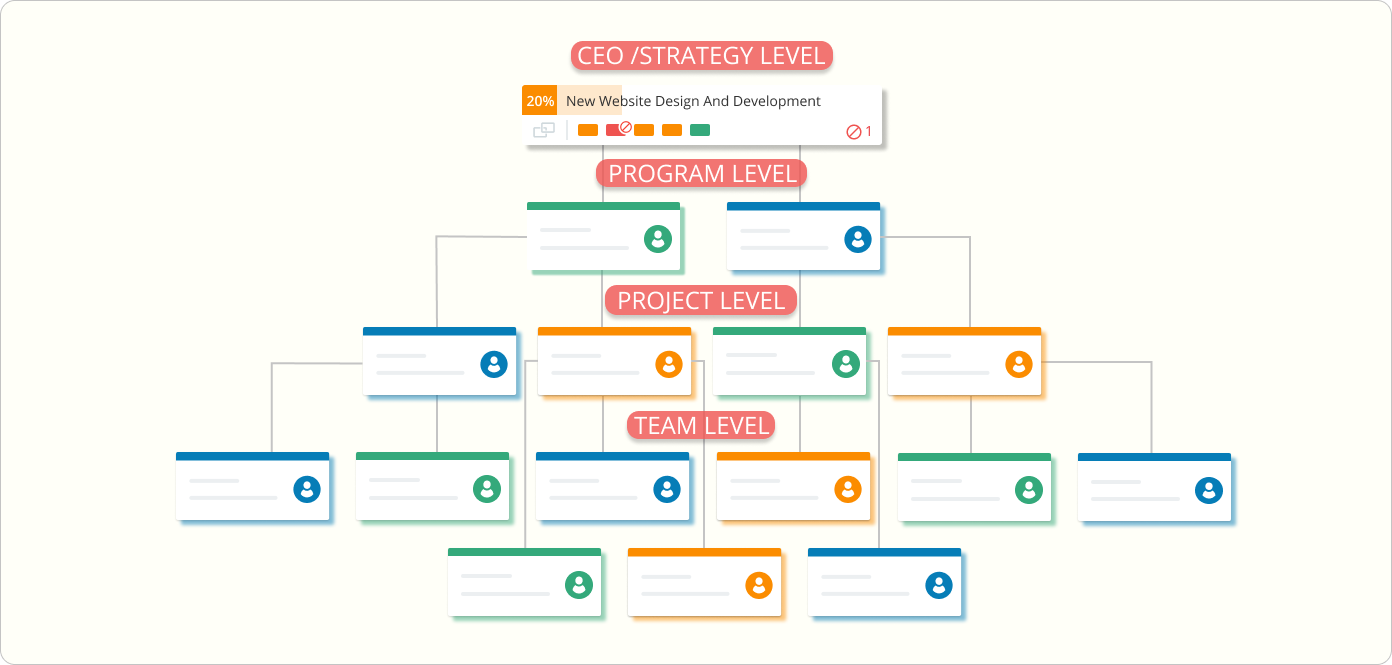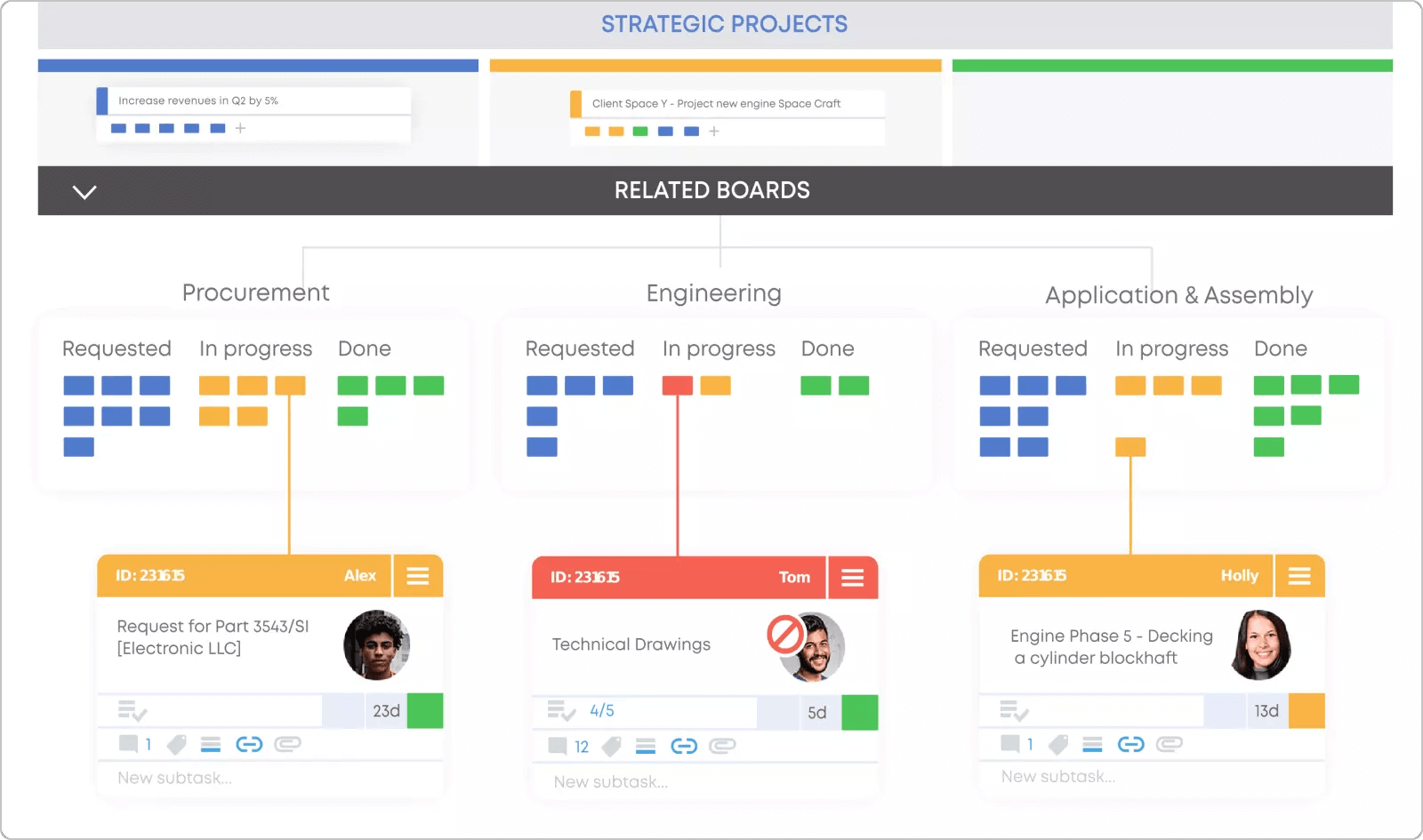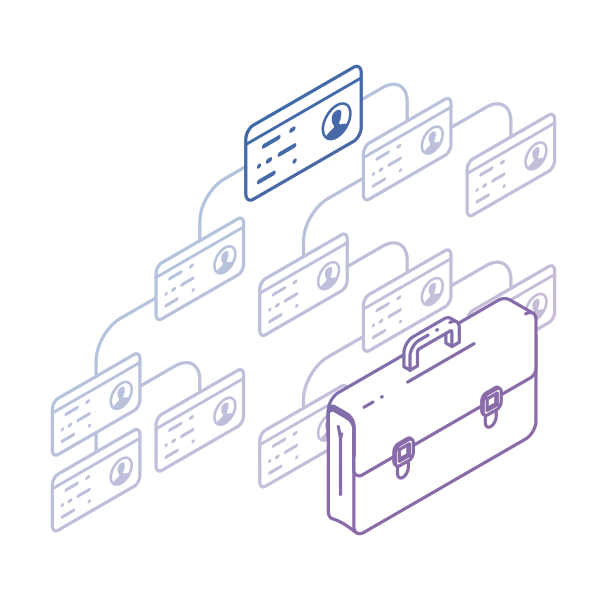Project management is a critical aspect of any organization's success, as it involves planning, organizing, and executing tasks to achieve specific goals and objectives. In today's fast-paced and competitive business landscape, effective project management has become even more crucial, as it ensures that projects are completed on time, within budget, and with expected quality standards.
However, successful project management is not just about meeting these parameters; it also involves delivering tangible results that meet the project's objectives and satisfy stakeholders. These tangible results are known as project management deliverables, and they are essential in showcasing the successful completion of a project.
In this article, we will delve deeper into the concept of project management deliverables, their importance, and how they contribute to the overall success of a project. As we explore this topic, we will also discuss the different types of project management deliverables and how project managers can effectively manage them to meet stakeholders' expectations.
What Are Deliverables in Project Management?
Deliverables in project management refer to the tangible or intangible outputs produced from completing specific project activities. These could be documents, reports, prototypes, software, or any other tangible or intangible item that is required to meet the project's objectives.
Deliverables are usually defined in the project's scope statement and are used to measure the progress and success of the project. They serve as benchmarks for evaluating the quality and completeness of the work performed and are essential for ensuring that project requirements are met and stakeholders' expectations are fulfilled.
A deliverable should not be confused with a milestone. A milestone serves as a distinct marker or critical point in a project, indicating the attainment of a significant accomplishment. Upon reaching a milestone, the project typically proceeds to the next stage. In contrast, a deliverable requires the submission of the final outcome to a designated individual or team.
What Аre Internal vs. External Project Deliverables?
Internal and external project deliverables refer to the recipients or stakeholders who benefit from or receive the results of a project. The distinction lies in whether the deliverables are intended for use within the organization undertaking the project (internal) or for external entities such as clients, customers, or other stakeholders outside the organization (external).
Internal Project Deliverables
-
Definition: Internal project deliverables are outputs or products produced within the organization and primarily used by project team members or other departments within the same organization.
-
Examples: Internal project deliverables could include project documentation, team training materials, internal reports, or software components integrated into the organization's systems.
External Project Deliverables
-
Definition: External project deliverables are outputs for stakeholders outside the organization. These stakeholders could be clients, customers, regulatory bodies, or any external entities interested in or affected by the project.
-
Examples: External project deliverables may encompass finished products, reports, software applications, marketing materials, or any other tangible or intangible items provided to external parties as part of the project's completion.
What Are Process Deliverables vs. Product Deliverables?
Process deliverables and product deliverables are two types of outcomes in a project, each serving a different purpose. The distinction lies in whether the focus is on the processes followed during the project or the tangible end products produced by the project.
Process Deliverables
-
Definition: Process deliverables are the results or outputs associated with the activities and steps carried out during the project. These are often related to project management methodologies, documentation, or specific processes followed to achieve project objectives.
-
Examples: Project plans, status reports, risk assessments, communication plans, and any other documentation that outlines the procedures, methods, or steps taken throughout the project.
Product Deliverables
-
Definition: Product deliverables are the tangible or intangible items that are the primary focus of the project. These are the actual outcomes, goods, or services that the project is intended to deliver to meet its objectives. Product deliverables are the results that provide value to stakeholders.
-
Examples: In software development, product deliverables could include a completed software application, documentation, and user manuals. In construction, it could be the constructed building. In marketing, it might be the finalized advertising campaign.
Examples of Project Deliverables from Different Teams
Here are examples of project deliverables from different teams:
-
Creative teams: Examples of project deliverables from creative teams include designs, concepts, artwork, visual assets, multimedia content, and creative campaigns.
-
Professional services teams: Project deliverables from professional services teams can include consulting reports, research findings, strategic plans, training materials, implementation documents, and project documentation.
-
Product teams: Project deliverables from product teams can include prototypes, user interface designs, functional specifications, product roadmaps, user manuals, and quality assurance reports.
-
Marketing teams: Project deliverables from marketing teams include competitive research, advertising campaigns, social media content, content calendars, marketing collateral, and performance reports.
-
Agency teams: Project deliverables from agency teams can include client presentations, media plans, campaign strategies, creative briefs, campaign performance reports, and client deliverables such as websites, videos, or advertising materials.
When Are Project Deliverables Agreed Upon?
Project deliverables are typically agreed upon during the project planning phase, which occurs at the beginning of a project. This is when project objectives and requirements are established, and stakeholders come together to determine what specific deliverables are expected from the project.
These deliverables are then documented in the project plan or statement of work and serve as a basis for tracking progress and meeting project goals. However, it's important to note that deliverables may also be revised or adjusted throughout the project lifecycle as new information or requirements arise.
Can Project Deliverables Change During a Project?
Yes, project deliverables can change during a project. As projects progress, new information may become available, stakeholder requirements may evolve, or unforeseen challenges may arise.
These factors can necessitate adjustments to the project deliverables to ensure they align with the project goals and meet the changing needs of the stakeholders. Project managers must have a flexible approach and be willing to adapt the deliverables to ensure project success.
In traditional project management, this happens through change requests that need to be formally approved. In Agile, the approach is different. Instead of creating detailed plans, Agile teams focus on "barely sufficient" details, which allows more room for changes later down the line and doesn't lead to extensive delays.
Who Oversees Project Delivery?
The project manager is responsible for overseeing project delivery. They are responsible for planning, organizing, and executing the project, ensuring it is completed within the given time frame and budget and meets the required specifications.
The project manager manages the project team, assigns tasks, monitors progress, and communicates with stakeholders. They are ultimately accountable for the successful delivery of the project.
The Role of Deliverables in Project Lifecycle
Let’s explain the role of deliverables in the project lifecycle.
Initiation Phase
In the initiation phase, the project team defines the project objectives, scope, and resources. The deliverables in this phase may include the project charter, business case, and feasibility study. These deliverables help the project team understand the project's purpose, goals, and constraints.
Planning Phase
In the planning phase, the project team develops a detailed project plan that outlines how the project will be executed, monitored, and controlled. The deliverables in this phase may include a project schedule, risk management plan, and budget. These deliverables help the project team identify potential risks, allocate resources, and establish a baseline against which project progress can be measured.
Execution Phase
In the execution phase, the project team implements the project plan and produces the project deliverables. The deliverables in this phase may include software code, design documents, or physical products. These deliverables are reviewed and approved by the project stakeholders to ensure they meet the project requirements.
Closure Phase
In the closure phase, the project team completes all project activities and produces the final deliverables. The deliverables in this phase may include project documentation, lessons learned report, and final product or service. These deliverables are reviewed and accepted by the project stakeholders, and the project is officially closed.
Best Practices in Deliverable Management
Deliverable management is a crucial aspect of project management. It involves tracking and managing the outputs or products of a project. Here are some best practices to help ensure successful deliverable management:
Define Clear Deliverables
The first step in deliverable management is to define clear and measurable deliverables. This involves breaking down the project into smaller tasks and identifying the specific outputs or products needed for each task. A clear definition of deliverables helps to ensure that everyone involved in the project understands what needs to be achieved and when.

Establish Deliverable Ownership
Each deliverable should have a clear owner responsible for ensuring it is completed on time and to the required standard. This helps to ensure accountability and avoid confusion over who is responsible for each output. It is important to communicate deliverable ownership to all stakeholders involved in the project.
Use a Deliverable Tracking System
A deliverable tracking system helps ensure that all deliverables are tracked and managed effectively. This can be achieved using project management software, spreadsheets, or other tools. The tracking system should include information such as the deliverable owner, due date, status, and any dependencies.

Monitor Deliverable Progress
Regular monitoring of deliverable progress is essential for successful deliverable management. This involves tracking progress against the deliverable tracking system and identifying any issues or delays. It is important to communicate any issues to the relevant stakeholders and take appropriate action to address them.
Review and Evaluate Deliverables
At the end of each project phase or project completion, it is important to review and evaluate the deliverables to ensure they meet the required standards and are fit for purpose. This involves assessing the quality of the deliverables and identifying any areas for improvement.
Challenges in Managing Deliverables
Managing deliverables can be a challenging task for project managers. Some of the common challenges faced during the process are discussed below.
Scope Creep
Scope creep is a common challenge that project managers face when managing deliverables. It refers to the uncontrolled expansion of the project scope, which can result in the addition of new deliverables or changes to existing ones. This can lead to delays in project completion, increased project costs, and reduced quality of deliverables.
To reduce scope creep, project managers should define the project scope clearly and communicate it to all stakeholders. They should also implement a change control process to manage any changes to the project scope.
Resource Allocation
Resource allocation is another challenge that project managers face when managing deliverables. It refers to the process of assigning resources to tasks to ensure that they are completed on time and within budget. Project managers need to ensure that they have the right resources available at the right time to complete the deliverables.
This includes identifying the skills and expertise required for each task and allocating resources accordingly. They should also monitor resource utilization to ensure that resources are not over-allocated or underutilized.
We offer the most flexible software platform
for outcome-driven enterprise agility.
In Summary
- Project management deliverables are the tangible outcomes of a project that showcase progress and demonstrate the successful completion of various project phases.
- Deliverables are essential for project success, providing a clear understanding of the project scope and objectives, managing project costs and timelines, and identifying project risks.
- Effective deliverable management requires clear identification, tracking, reporting, quality control, and best practices.
Managing deliverables is a crucial aspect of project management. Project managers need to be aware of the challenges they may face and take appropriate measures to overcome them. By doing so, they can ensure that the project is completed on time, within budget, and to the required quality standards.










